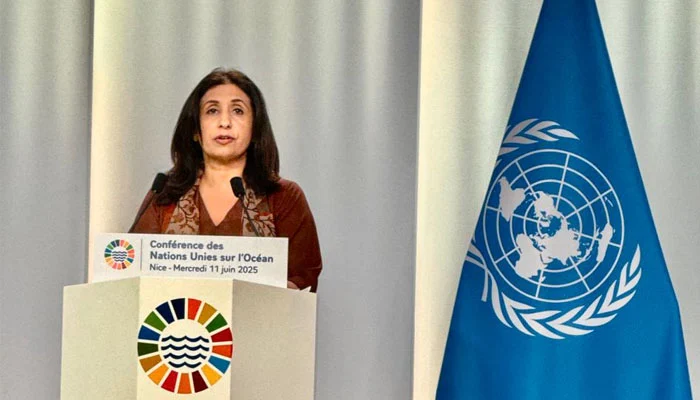
Pakistan Calls for Bold ‘Global Action’ to Protect Oceans
Pakistan has reiterated its strong commitment to the protection and sustainable use of ocean resources by calling for bold and collective global action. This call was made during Pakistan’s participation in various international forums, including World Oceans Day 2025, as the country emphasized the urgent need for collaborative efforts to combat marine pollution, overfishing, and the adverse effects of climate change on the marine environment. With its strategic coastal location and deep reliance on the Arabian Sea, Pakistan has emerged as a vocal advocate for ocean conservation, urging the global community to prioritize ocean health in climate and development agendas.
Pakistan’s Marine Landscape and Challenges
Pakistan has a coastline stretching over 1,000 kilometers along the Arabian Sea, encompassing vital ecosystems such as mangroves, coral reefs, estuaries, and a vast Exclusive Economic Zone (EEZ). These marine resources are crucial for the country’s fisheries sector, livelihoods of coastal communities, biodiversity, and national economy.
However, the marine environment faces increasing threats. Pollution from land-based sources, including industrial waste, untreated sewage, and plastic debris, continues to degrade coastal and offshore waters. Overfishing and illegal, unreported, and unregulated (IUU) fishing practices have also led to the depletion of fish stocks. Climate change has further intensified challenges, contributing to rising sea levels, ocean acidification, and changes in fish migration patterns, directly affecting food security and local economies.
Pakistan’s Call for Global Responsibility
Recognizing the severity of these issues, Pakistan’s Ministry of Climate Change and Environmental Coordination has consistently stressed the need for a global, integrated approach to ocean conservation. During recent multilateral discussions, Pakistan called for enhanced international cooperation, increased funding for marine protection, and the establishment of stronger mechanisms to monitor and reduce marine pollution.
Pakistan has urged developed nations and international organizations to support capacity-building and technology transfer to developing countries, enabling them to manage their marine resources more effectively. Highlighting the principle of common but differentiated responsibilities, Pakistan emphasized that while all nations share the duty to protect oceans, developed countries must lead with concrete actions due to their historical contribution to pollution and environmental degradation.
National Efforts Toward Marine Conservation
At the national level, Pakistan has initiated several projects aimed at improving the health of its marine ecosystems. The government has expanded marine protected areas (MPAs) and is working to enhance monitoring of marine pollution sources. Under the “Blue Economy” strategy, Pakistan aims to balance economic development with environmental sustainability by promoting sectors such as eco-tourism, sustainable fisheries, and marine biotechnology.
Furthermore, Pakistan is actively participating in the United Nations Decade of Ocean Science for Sustainable Development (2021–2030), which seeks to advance scientific knowledge and inform policy decisions for ocean sustainability. The country has also partnered with international bodies like the United Nations Environment Programme (UNEP) and the International Maritime Organization (IMO) to implement marine conservation protocols and improve maritime safety standards.
Importance of Oceans in Climate and Development
Oceans play a vital role in regulating the Earth’s climate, producing oxygen, and supporting life on the planet. They absorb nearly one-third of the carbon dioxide emitted into the atmosphere and act as a buffer against the impacts of global warming. Oceans also serve as a source of food, energy, and employment for billions of people worldwide.
For coastal nations like Pakistan, the ocean is directly tied to national development. The country’s main port city, Karachi, handles the majority of its trade, and the coastal economy supports industries ranging from fishing to shipping. Therefore, degradation of the marine environment has far-reaching consequences, affecting not only ecological stability but also economic resilience and social welfare.
The Way Forward for International Collaboration
Pakistan has joined calls for the conclusion of a legally binding international treaty to protect biodiversity beyond national jurisdiction (BBNJ), often referred to as the “High Seas Treaty.” The country supports initiatives that promote the sustainable use of marine resources and equitable access to benefits derived from them.
In forums like the UN Ocean Conference and regional maritime partnerships, Pakistan continues to advocate for science-based policymaking, inclusive dialogue, and integrated strategies that link ocean health to global sustainability goals.







